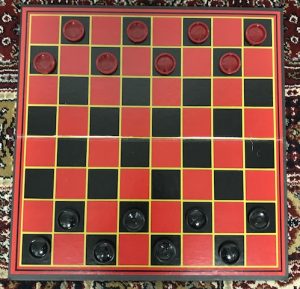
Anxiety Series: The Anxiety Game
If you’ve been following along in my Anxiety Series blog posts, you’ve learned quite a lot already about anxiety.
You’ve learned……..

- The more you pull away from anxiety, the more it grabs you tighter.
- You can rewire your brain by breathing into your fear, your anxiety.
- Anxiety doesn’t respond to words, it only responds to breathing into your emotions and body sensations.
- You can teach the fear center of your brain that you are safe, by allowing yourself to feel anxious.
- Some worries are helpful, signals. Some worries are not helpful, noise.
- Knowing what you want for your life helps you have the motivation & courage to breathe into anxiety.
Dr. Reid Wilson built on these ideas when he created “The Anxiety Game”. How does this game work?
- The first thing to know is that anxiety is your competitor in a game, but anxiety wrote the rules of the game so it could win every time! Well that’s not fair!
- This is a mental game, a game about our relationship towards doubt and distress.
- You have to change your mental attitude towards wanting to be a good offensive player, towards wanting to look everyday for anxiety.
Anxiety’s Game Rules to Make You LOSE & Make You Feel Anxious:
- Be careful……….you might have caused a horrible problem………..be worried that you’ve already caused one. Oh no!!
- If a scary thought comes up, take it SERIOUSLY.
- Feel 100% certain.
- Use your anxiety/fear as a gauge. If you’re uncomfortable, then there is still DANGER.
- Always act defensively.
If you are always acting defensively, you can NEVER win this game against anxiety.
The OFFENSIVE STRATEGY is asking you to feel UNCERTAIN. (Again, it’s a paradoxical game. Hang in there with me & with Dr. Wilson.)

Want to hear the WINNING STRATEGY?
- Do not pay attention to the content of your thoughts. (Anxiety knows you really well, & it knows what upsets you. Anxiety is a big bully being unfair.) So know, whatever your anxiety is about, it’s really just noise taking you down a rabbit hole of upset.
- Accept whatever thoughts come into your head. It’s totally OK to have these thoughts. (If I were to tell you not to think of purple elephants for the next hour, that’s all you’ll want to think about. By telling yourself it’s OK to think these thoughts, that alone helps calm you.
- WANT to make yourself UNCERTAIN. (This is how your amgydala, your smoke alarm, your fear center, will learn. If you always protect your amgydala from the feared thing, it can’t learn that it’s really safe.)
- WANT to be ANXIOUS.
- Make rules ahead of time and follow them. (When I feel anxious, I’m not going to eat the entire box of cookies. And yes, I’ll feel plenty anxious and uncertain in doing that, which is great! Again…….paradoxical.)
When you play by the winning strategy, you’ll feel awkward & clumsy doing this. You need COURAGE to feel this way.
Here’s an example of how it works:
- Automatic anxious thought appears: “Did I wash all the germs off my hands? I need to be 100% certain.”
- Say, “It’s OK to have this thought.”
- Think about your motivation for conquering anxiety, our outcome picture. Use this picture to give you motivation and courage to face your anxious feeling.
- Move the words to the side, and ask yourself what emotion comes up for you when you have this thought?
- Where is this emotion in your body?
- BREATHE into your emotion and body sensation, with out words. (Like the lizard on the rock.) Have COURAGE to feel this emotion and body sensation.
Say either of these to yourself:
- I can handle this.
- I want this to last longer & to be stronger.
Some people like the idea of being a competitor in a game. Try this out, and let me know what situations/thoughts improved due to playing The Anxiety Game.”
For more info on “The Anxiety Game”, check out Dr. Wilson’s book & video series:
Book Shelf:
Reid Wilson
Stopping the Noise In Your Head
http://noiseinyourhead.com/free-video-series/
Video Series
(I learned all of the above info from a webinar Dr. Reid Wilson gave. Thank you Dr. Wilson for sharing your insights on anxiety.)

